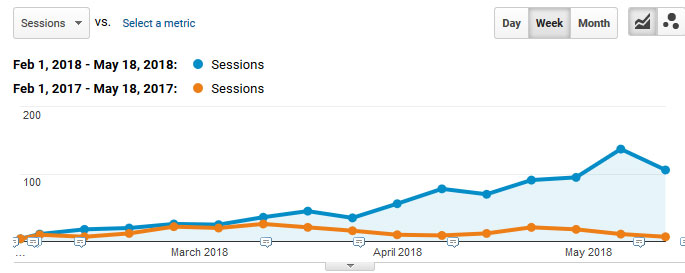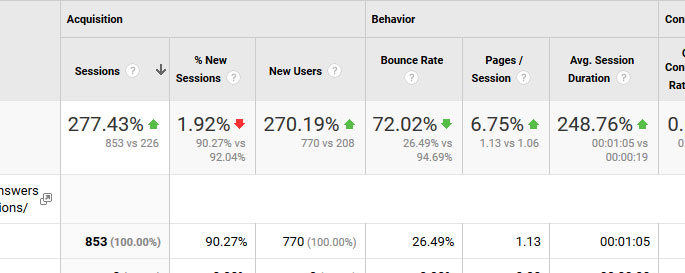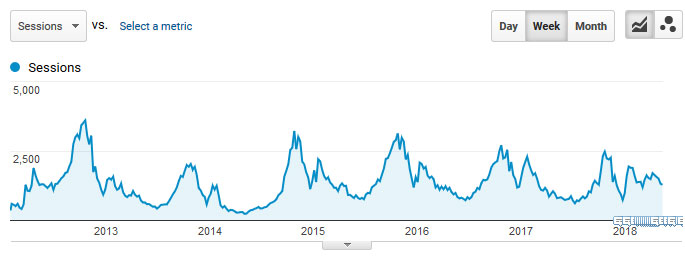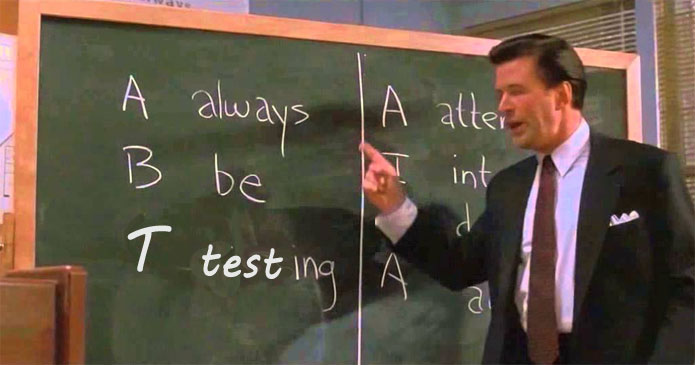Staying Honest With Your SEO
Earlier this week I read a post by Jayson Demers on Forbes where he poses the questions ‘Is your SEO campaign really going as well as you think it is’.
Here, Jayson touches on some classic ‘biases’ and bad habits that we have all fallen prey to here at Adster (mostly me), and some very important things to keep in mind if one is intent on succeeding ‘for reals’ with your SEO efforts.
Most specifically, the Forbes article struck close to home with an experiment we’re running on an in house ‘play site’.
Adster’s Hobby Site
College Basics (operated jointly by the Adster team) is a medium sized, educational resource with loads of good content…but alas, a site where only a small portion of this good content seems to perform well in Google.
What a perfect (and consequence free!) place to test SEO concepts and strategies, push our luck, fail fabulously, and if we’re really lucky, make a few bucks in the process!
Accordingly, part of our goal with this site is to identify single pages with room for improvement, then test the following Adster SEO tactics to see how much they move the needle:
- Freshening and lengthening/re-writing thin, borderline useful content
- Implementing simple UI upgrades, multiple images, and other usability goodies.
- Adding additional relevant ‘internal’ links from across the site.
- Adding fresh, relevant backlinks from bloggers and other influencers.
Go time! (Sorta)
By sheer virtue of the time it takes to getting around to doing things (we DO spend a fair bit of time knocking it outta the park for our clients), we wound up staggering these 4 concepts over the span of a couple months – and thank goodness we did!
Thanks to dutiful annotations in Google Analytics, we’ve got to witness some impressive performance improvements that may (or may not) have aligned with our efforts – or lack of effort.
To that end, here’s a few reminders and takeaways when it comes to staying honest with your SEO:
Tunnel vision on ‘head terms’
To be certain, there are a handful of ‘head terms’ that we’d like to see some improvements for ranking wise. However, if we were simply focusing on these rankings, we would be missing out on something far more cool: the fact that this page has seen a 270% year over year increase in new users (isolated from a much more modest site-wide increase of 22%) and some incredible increases in time on site and bounce rate.
While our rankings for the main search terms have only improved incrementally, we’re now ranking far better for dozens of ‘related’ terms.
Know how to read your datas
Looking back over time, we know that this site is a seasonal site that ebbs and flows with the college intake and high school schedule. Accordingly if we were only looking at the last 12 months, we would be unable to see these organic up and down trends. While it looks like we’ve got a bit of a down trend happening, by looking further back we can see we’re bucking a 5 year old trend that happens in late spring every year.
Beware the Confirmation Bias trap
Some level of adherence to being scientific about our approach is critical to effective SEO. Had we tested all of our theories and rolled out our plans all at once, it would have been impossible to know which individual tactic created our impressive initial gains. This of course further driving home our individual biases on which parts of an SEO strategy are ‘the really important parts’, leading to no one learning, well, anything.
Best Practices are best Practices for a reason
There is nothing in our SEO plan that is trendy, controversial, cutting edge, or otherwise attention grabbing. While initial signs point to on our page improvements giving a substantial lift, it will be interesting to see over time how our holistic link building efforts play out.
Further, while this approach – in this order – seems to be working well for an informative blog post on an education site, I suspect the same couldn’t be said for a small business writing 5000 words for each of their service pages (yawn).
In the end, I suspect that all of strategies working together will yield the greatest results. However, while no individual approach we’ve taken here could possibly be considered as NOT being valid, by understanding the effort in versus reward out relationship, we’re best poised to refine and maximize our efforts.
Always be testing.
If I’ve had any luck as an SEO’er, it’s because I’m a curious guy, and probably because I’m not afraid to break things (Known in SEO speak as ‘testing’).
While SEO comes with no guarantees, doesn’t always work as predicted, and can create no end of educational/apologetic client conversations, gains like we’ve had with our play site are hard to deny.
If you’re looking for an SEO team who isn’t afraid to put their money where their mouth is, give me a shout!




